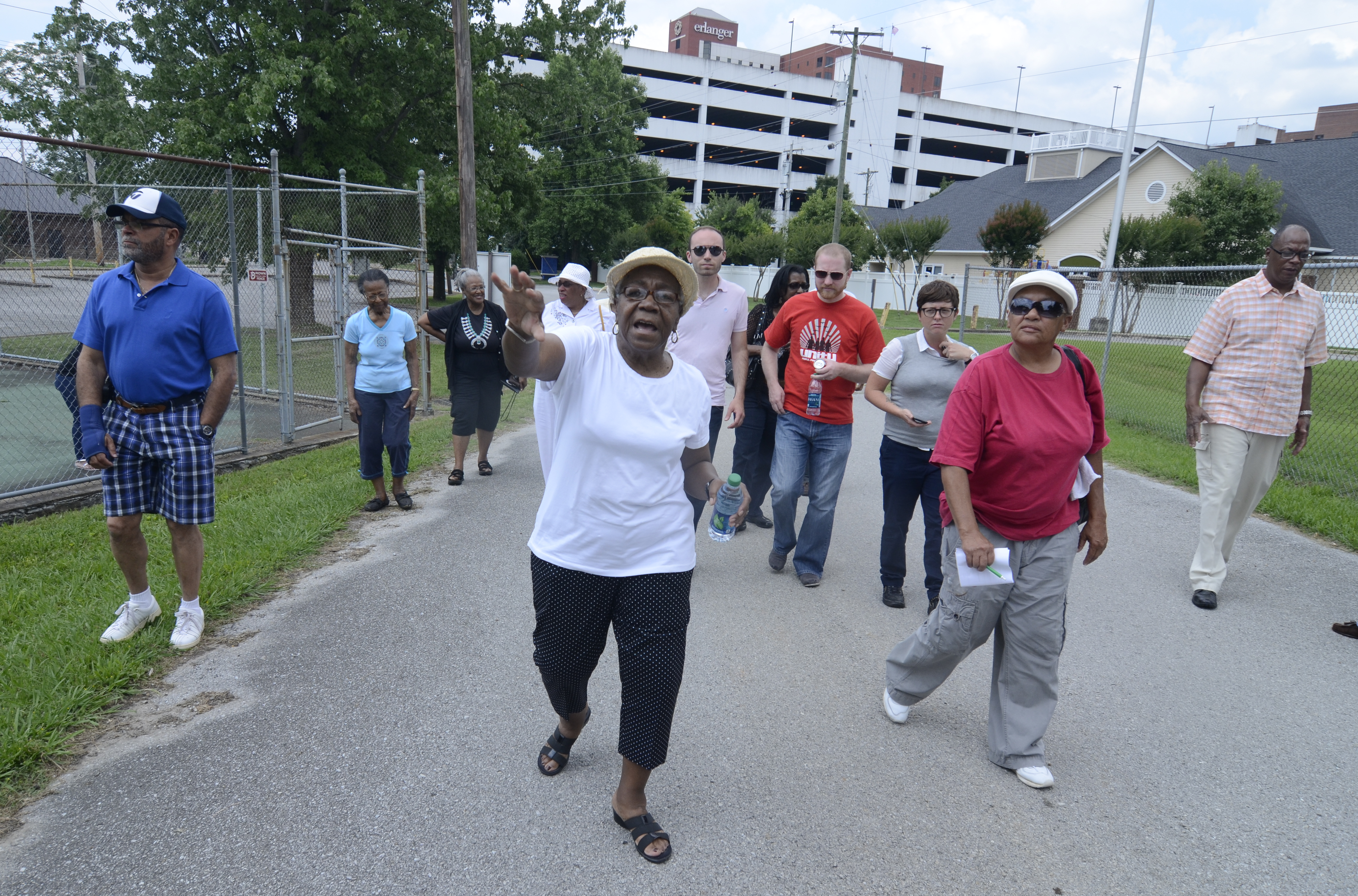Lincoln Park residents developing community plan
Friday, January 1, 1904
Lincoln Park residents will document their vision for their community, and they have college students from three universities and members of Chattanooga Organized for Action helping them.
"Lincoln Park is a historical area for African-Americans, and we want to preserve as much of it as we can," said Vannice W. Hughley, president of the Lincoln Park resident association.
Hughley and the 100-plus households that make up Lincoln Park will produce a resident-led community plan, one that includes a route for the city's proposed Central Avenue extension, but without the effects on the neighborhood they say the city plan would cause.
City Councilman Moses Freeman, who represents Lincoln Park, said he believes Mayor Andy Berke's administration "will give serious consideration to any of the ideas of the residents that's in that neighborhood."
The mayor's spokeswoman, Lacie Stone, said he wants to work with the residents.
"The mayor will not sign off on a plan where Lincoln Park or any home in Lincoln Park will be destroyed," Stone said. She asked the group to communicate with Berke's office.
"There are several options in front of us, and we want and need input from those who live in this neighborhood as we move forward," Stone said in a written statement.
Lincoln Park, located behind Erlanger hospital, was where blacks across the region came for recreation in the 1950s and 1960s during segregation, said Hughley. It had an Olympic-sized pool, and the park was twice as large as it is today. But the railroad and Erlanger have encroached on some of the property that once made up the community, Hughley said.
She wants what is left of Lincoln Park to be preserved and recognized as a historical park.
The city's earlier plan to connect Central Avenue with Amnicola Highway would start just after Third Street and mostly would eliminate the Lincoln Park playground, Hughley said.
Stone said no part of the city's plan for the extension has ever included destroying Lincoln Park.
Freeman envisions office space or condominiums along Amnicola around the intersection with the extended Central.
"I would be supportive of that as long as it would not interfere or cause the destruction of the park," he said.
Neighborhood residents planned to work on their vision for the community at Gethsemane Missionary Baptist Church in Lincoln Park on Saturday.
The immediate goal is to plan a Lincoln Park reunion for the end of summer. Along the way, residents will take steps toward documenting their dreams for their community.
"[Creating a community plan] may be a way to revive interest in Lincoln Park and present it as a place where people from throughout the city would want to come," said Freeman. "I envision bicycle trails and walking paths."
Cornell University student Courtney Knapp, a doctoral candidate in city and regional planning, helped develop a plan to analyze a community's physical, economic and social infrastructure and map the results.
Jeremy Crute, a master's degree candidate in urban and regional planning at Florida State University, will demonstrate the use of geographic information systems to map data.
"We're walking around the community with a set of questions to get people engaged about what this could be and how could we get there," said Perrin Lance, co-founder of Chattanooga Organized for Action, a social justice nonprofit.
Social work students from Southern Adventist University will record community boundaries, churches, schools, water runoff and sewer spots.
When the exercise is complete, residents will know more about the community's assets and what it needs, said Lance.
If the resident-led planning process is successful, it will be the model for eight other neighborhood organizations that want to produce resident-led visions for their communities.
Community organizations in Glenwood, Eastdale, Avondale, Bushtown and Churchville are among those working with COA and the students to develop or fine-tune their own community plans and be more proactive in determining what happens to their neighborhood.
"How often is it that we're trying to save this or stop that? But you don't win games on defense," said Lance. "We want to work with communities that have been on the defense to come up with their vision of what they want their communities to be."
Contact staff writer Yolanda Putman at yputman@timesfreepress.com or call 423-757-6431.


